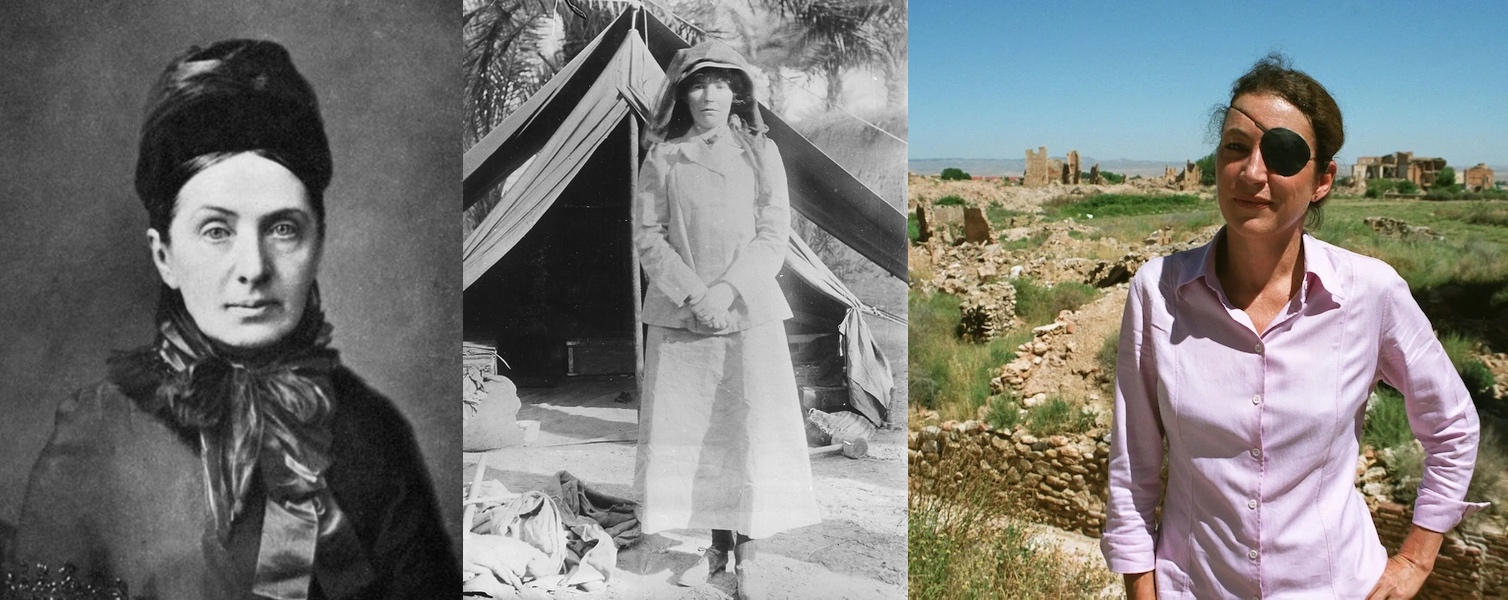In my previous post on adventure travel I listed a number of adventure writers that have inspired me over the years. You may have noticed that they were almost exclusively men. The reason is because I wanted to do a separate post specifically highlighting women voices in the genre. (The reason I mentioned Gertrude Bell in the last post is because I think if you ever mention T.E. Lawrence you are obliged to bring her name up!)
To recap from that last post: a “culture high” is that rush you feel in a culture shock situation, the risk involved as you are doubting your instincts about what to do next in an unfamiliar social context. It is sort of like the disoriented exhilaration you feel on a rollercoaster. Let me give you an example: for North Americans I think industrialized nations like Japan are particularly sly at springing these situations on you, firstly because it is so safe here that you are not in constant fear for your survival, secondly because “on the outside” it looks a lot like the West, so one can be easy to be lulled into certain expectations. Countries that look very different from where you grew up will likely have you on edge, making you more observant and cautious. The point of this example is to illustrate cultural relativity. Depending on where you are from, you can get that culture rush in a different manner. Therefore, reading women’s accounts of exploring a different country/culture as a man delivers a sort of double culture shock for me.
The extra layer of perspective is gratifying (if often horrible, for many reasons as I am sure you can imagine). Because of the general unwelcomeness of the “Old Boy” adventurers, ladies like Gertrude Bell had to be exceptional, not just extraordinary. The uncrowned “Queen of Arabia” was a translator of Persian poetry, an Arabist, and very brave. I enjoyed reading about what she saw in the desert in A Woman in Arabia: The Writings of the Queen of the Desert, and what she thought of the people to become “Iraqis.” The biography Desert Queen: The Extraordinary Life of Gertrude Bell: Adventurer, Adviser to Kings, Ally of Lawrence of Arabia gives insightful context and behind-the-scenes information that let you know just how difficult it was for her to do what she did. Part of my graduate degree was analyzing Lawrence’s strategy (and I have seen Lawrence in Arabia many, many times! A classic of adventure film), so getting the “real” story from Bell’s point-of-view was eye-opening. 😉
Bell was certainly a tool of empire, so we have to take what she wrote in that critical light. Towards the end of her career she was certainly much more skeptical of colonialism. Isabella Bird was from a previous generation, and on a “holy” different mission. Bird’s Unbeaten Tracks in Japan gives a fascinating view of travelling this country in the 19th century. She was a different breed of adventurer compared to Gertrude Bell (not having to hide rifles in her ladythings or anything like that), and it is a bit questionable about how “rough” her travels were (see this piece in Nippon.com for an academic take, and also advice on getting hold of the right editions of her books). You can read some excerpts of her writings in Kyoto Journal issue 90: Old roads, revisited. Isabella Bird travelled many countries and was the first woman to be invited to enter the illustrious Royal Geographic Society in 1892. (It is my dream to go to the RGS library in London one day, and see some of the documents stored there!)
Even though Gertrude Bell was often in the shadow of “Lawrence of Arabia”, she did inspire later women writers such as Marie Colvin, the famous war reporter. I was a bit young to see her actual reporting on television, but in anticipation of the film biopic A Private War released in 2018 I read In Extremis: The Life of War Correspondent Marie Colvin. I think Rosamund Pike does her justice in the film (although the book is better, of course!). I am stepping out of the adventure “travel” genre here, because these works are more about Marie Colvin as a woman reporter rather than the cultures she visited, but she did go on many risky and dangerous adventures, losing her eye to the Tamil Tigers and in Syria sadly losing her life. In Extremis is highly recommended, and demonstrated how even extraordinary women have limits.

There are many, many women authors of adventure out there. A recent issue of the Mekong Review includes a fascinating review of Elizabeth Becker’s You Don’t Belong Here: How Three Women Rewrote the Story of War. Take a look at the MR book review — it certainly inspired me to read more accounts of far off places from women. One that has been on my backlist for a long time is Alexandra David-Néel’s forbidden journey to Lhasa. I would love to see how her experience compares to Younghusband’s.
If you have any you would like to recommend, please post them below!

